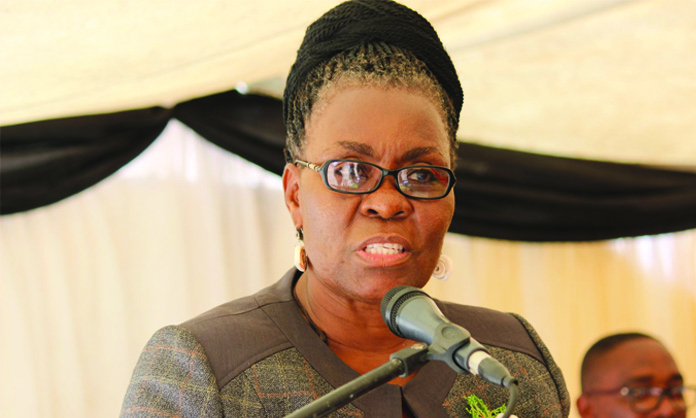The Ministry of Education, Arts and Culture says it has budgeted N$30 million to procure information and communication technology (ICT) hardware and software for schools countrywide.
This was revealed by education minister Anna Nghipondoka in Windhoek on Wednesday, during the ministry’s Cabinet briefing.
The minister said the ICT expenditure plan of N$30 million stems from the national education conference implementation plan.
Nghipondoka said an estimated budget of N$750 000 per lab was earmarked by the ministry to purchase fixed computers for 42 schools nationwide, with around three labs per region.
“Uninterrupted power supply, network accessories, 40 desktop computers, one teachers’ laptop, a printer and a server will be included in the computer lab,” she said.
She said an additional budget of N$3,2 million will be earmarked for the procurement of smart interactive screens for 41 new Advanced Subsidiary level schools.
The minister said an estimated N$75 000 will be allocated per school, in addition to the 85 smart interactive screens which were rolled out to AS level schools in 2021.
“The procurement process is underway,” Nghipondoka said.
PRACTICAL SUBJECTS
Nghipondoka said the ministry has distributed N$14 million for practical subjects for the 2023/24 financial year.
“The curriculum reform ensured the reintroduction of expanded science subjects and pre-vocational subjects at selected schools in all the regions,” she said.
To that effect, Nghipondoka said the ministry has budgeted N$14 million to equip the technical workrooms and science labs of high schools.
“The National Institute for Educational Development was tasked to identify and allocate funds to the targeted schools, which were transferred directly to the schools,” Nghipondoka said.
FURNITURE
The minister said N$24,5 million has been budgeted for school furniture and the funds were equitably transferred to the regions to procure furniture for newly constructed classrooms under August 26 Construction Company.
FEEDING
The ministry has allocated an amount of N$130 million for the 2023/24 financial year to feed pupils in 2024.
“A total of 461 829 primary school pupils are currently benefitting from the programme, and this number is expected to increase, given the increase in pupil enrolment for 2023,” she said.
CLASSROOMS
Nghipondka said the ministry is well aware of the shortage of classrooms across the country and the negative impact it has on teaching and learning.
At the end of 2022, the total number of classrooms needed across the country stood at over 4 000.
“Nonetheless, the ministry has secured N$255 million to construct 510 classrooms and 70 ablution blocks through August 26 construction within a period of four months this year,” the minister said.
CONCERNS
Nghipondoka said: “When projects are allocated to regions, there are always delays and bureaucracy from some of our regional councils and own officials in getting these projects off the ground.”
As a result of an acute shortage of classrooms, children of pre-primary school age do not attend school, she said, and only join school at Grade 1 level.
“This lack of foundation formation results in children lagging behind in terms of numeracy and cognitive skills acquisition, which may affect their entire school career,” she said.
The minister said 98% of the classrooms and ablution facilities countrywide have been completed.
IN AGREEMENT
Teachers Union of Namibia secretary general Mahongora Kavihuha says ICT hardware for schools should have been procured years ago.
He says the ministry has received a huge amount from the treasury, but has failed to procure ICT equipment.
“But the question here is: Are we procuring this ICT equipment just for the sake of it? Will we train the teachers who will use this equipment?” Kavihuha asks.
He questions whether the equipment would improve pupils’ results, and whether servicing the equipment is sustainable.
“The results would improve, but we need to have a sustainable approach,” he says.
Kavihuha says many schools do not have the necessary materials, meaning pupils only learn theoretically.
“We are just teaching children about iron, magnesium and lithium, but they have never seen these elements. We have mines in this country, and if they could assist schools with samples, it would be good,” he says.
Stay informed with The Namibian – your source for credible journalism. Get in-depth reporting and opinions for
only N$85 a month. Invest in journalism, invest in democracy –
Subscribe Now!






